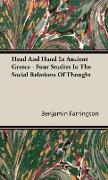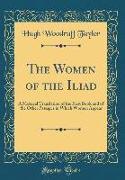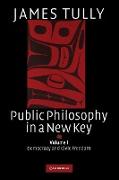Head and Hand in Ancient Greece - Four Studies in the Social Relations of Thought
BücherAngebote / Angebote:
HEAD AND HAND IN ANCIENT GREECE- FOUR STUDIES IN THE SOCIAL RELATIONS OF THOUGHT by BENJAMIN FARRINGTON The Thinker's Library No. 121. PREFACE: HERE are four essays which treat four great move* ments of ancient thought historically that is, in close relation to their social setting. If there be anything true in them they should help us to see beneath the surface of the social phenomena of our own day. The first discusses the character of the great early period of Greek science and shows that, while it was not yet experimental, neither was it purely specu lative. It was, in fact, closely related to practice. The Ionian philosophers were not simply observers of nature but active interferers with nature, for the philosopher and the man of action were yet one. They made a distinction between necessity and design that is, between the spontaneous processes of nature and the action of man on nature. They attempted to understand the spontaneous processes of nature the realm of necessity in the light of the controlled processes the realm of design. Thus, though experimental research had not yet been developed, speculation was controlled by being related to experience. The second essay traces the effect on the art and science of medicine of social changes affecting the attitude to manual work and the manual worker. It claims that the Hippocratic doctors, rightly famous for their analysis of the patient as a living organism striving to maintain itself in balance with its environ ment, yet overlooked the chief factor in a human being's environment his job. It is through his job that society chiefly acts on the individual. If the individual is failing to react adequately to his environ ment, very often it is his working conditions that need alteration. Stoicism forms the subject of the third essay, Stoicism as a living and developing movement in a changing environment. Looking through the eyes of the historian Diodorus Siculus we can see Stoicism as a way of life largely eastern in origin. It was at first inspired by astrological beliefs in a just society and was critical of the social injustices of Greek society. Later it declined into being the social cement of the Roman State and a school of resignation. The Roman State, aided by Stoicism, made as much use as it could of religion as a means of policing society. The fourth and last essay shows how jgjg. mild religion and boldjicience^ of Epicurus, the rapid spread of~ wEicK^ ffifouighout Italytfireatened to rob superstition of its police function, alarmed the governing class at Rome and produced an intellectual battle in which the statesman Cicero and the poet Lucretius were on opposite sides. B. F. INTRODUCTION: IT is agreed on all hands that the Greeks were great thinkers. Let nobody suppose I wish to dispute this fact. But it is widely taught that the Greeks were poor doers as well as great thinkers. I do wish to dispute this belief. I do wish to assert that the best Greek thinking was the companion and helper of vigorous action. Nowadays bookish people have lost the sense for all the intellect that exists outside books. A farm, a factory, an engine, a ship, the back-axle of a motor car, a wheel-barrow, a fishing-rod, is not seen as an intellectual achievement. No. The philosopher sits in his study and murmurs My days among the dead are passed.
Folgt in ca. 15 Arbeitstagen




